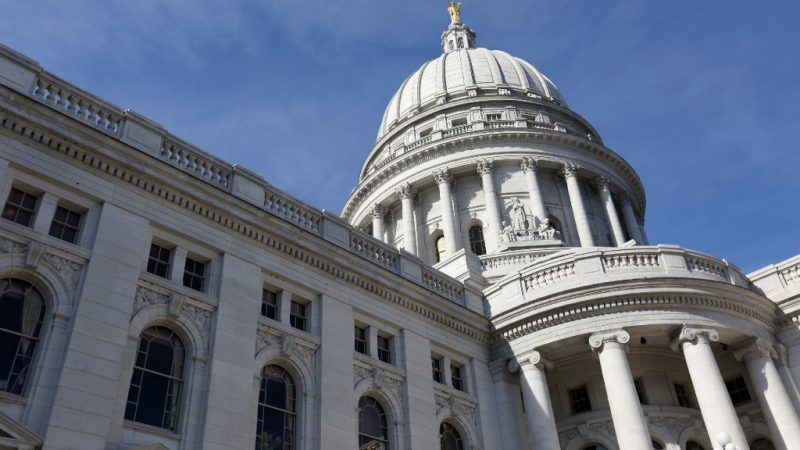The state’s largest business group is proposing a formula that would take into account factors such as local infection rates of COVID-19 and population density in determining whether a company could reopen, according to an overview obtained by WisPolitics.com.
The proposal released today also would look at health care capacity and how much people interact in a business to determine when businesses could open and what mitigation factors they would need to take to avoid spreading COVID-19.
The proposal calls for beginning the approach May 4, which is more than three weeks before the Evers administration’s latest stay-at-home order expires.
“Drinking a beer after work with friends at a bar, furthermore, is likely a higher risk than working in a manufacturing facility where there is little interaction with others,” the overview states. “The risks are different, but they are also manageable. The key is to manage them correctly to ensure workers and customers are protected. That is the essence of this plan.”
>> WisPolitics is now on the State Affairs network. Get custom keyword notifications, bill tracking and all WisPolitics content. Get the app or access via desktop.
Wisconsin Manufacturers & Commerce declined to comment on what it’s calling the “Back to Business” plan.
The proposal is one of several that’s been floated in the past week as Republicans have called on Gov. Tony Evers to begin reopening the state and sued to prevent enforcement of a new stay-at-home order.
Evers’ administration last week announced the extension of its stay-at-home order through May 26. The guv then followed up with a three-phase process to reopen the state.
Evers’ process includes benchmarks before moving from one phase to the next that include additional testing capacity and an increased ability to do contact tracing for those infected.
The documents on the WMC plans don’t mention testing capacity or contract tracing.
The WMC proposal calls for Evers’ Department of Health Services to set up a website to help businesses determine if they could reopen.
Companies would input their name, the county in which they operate and their North American Industry Classification System code, which classifies businesses by industry.
The site would then use four factors to determine the risk for each company: the infection rate in the county where they’re located; the population density in that county; the health care capacity in the area; and how concentrated personal interactions are as part of the company’s operations.
That would produce a risk factor of minimal, moderate or substantial.
The higher that risk, the more precautions businesses would be required to take to avoid spreading COVID-19. Examples WMC provided include social distancing among employees and customers, operating at a reduced capacity and increasing use of personal protection equipment.
GOP lawmakers have asked the state Supreme Court for an injunction preventing the Evers administration from enforcing its latest stay-at-home order. The suit also asks the court to stay the proposed injunction for six days so the Evers administration could draft an emergency rule, which would be subject to legislative oversight, to reopen the state.
The proposals that have floated provide some insight into what GOP lawmakers might be looking for in such an emergency rule.
The proposal to be released tomorrow comes after WMC had worked with state Sen. Chris Kapenga, R-Delafield, on a similar approach to reopening businesses. Kapenga said in an email the plan delivered a “transparent, data-driven plan that will allow people to safely return to work.”
“People and businesses around the state are hurting from the negative impacts of the stay at home order and are looking for a plan that begins to responsibly reopen sectors of the economy,” he said. “This plan delivers on that in a way that accounts for the risks associated with the business operations and where they are located.”
See an outline of the plan:
https://www.wispolitics.com/
See the presentation:
https://www.wispolitics.com/



